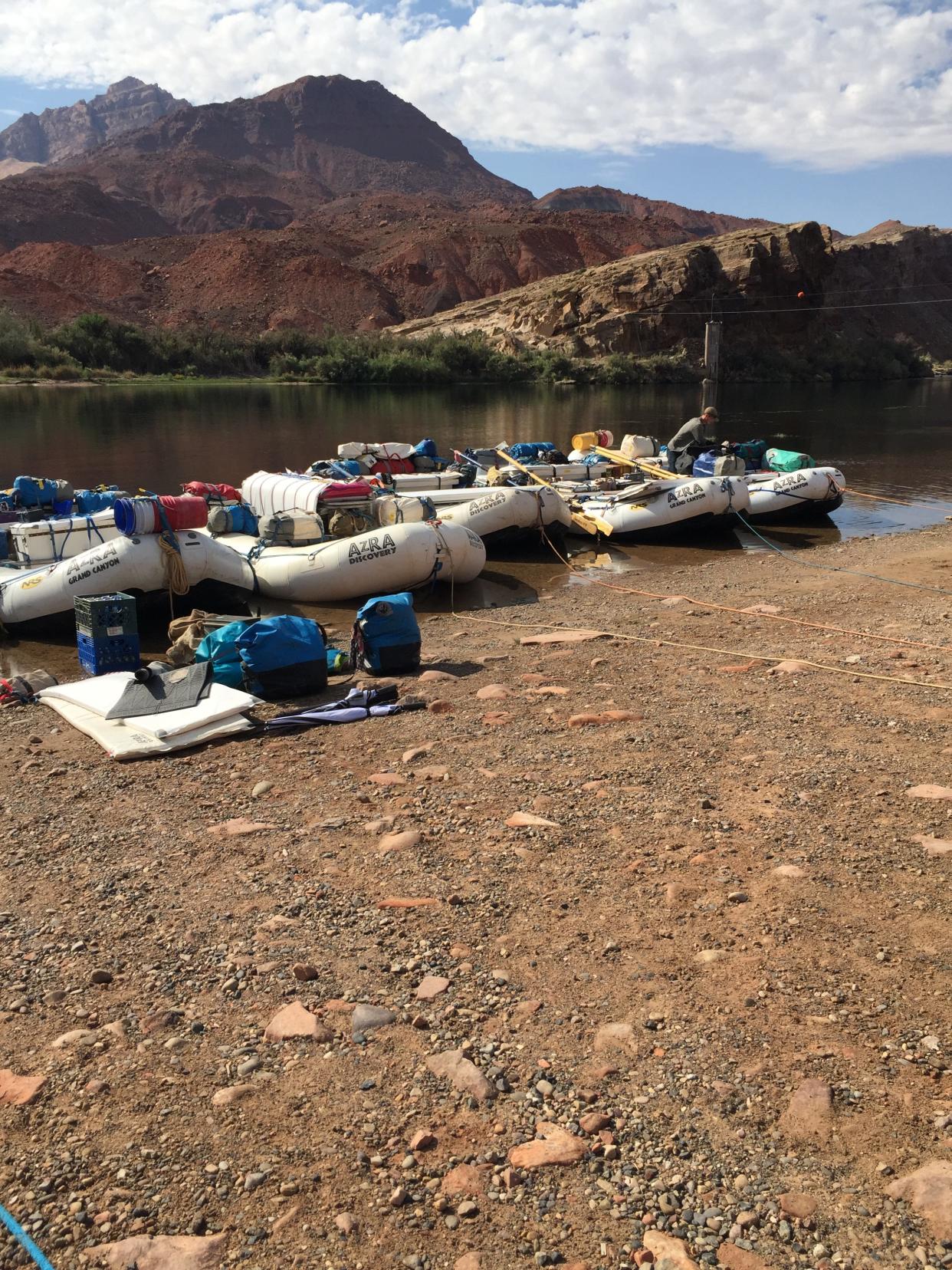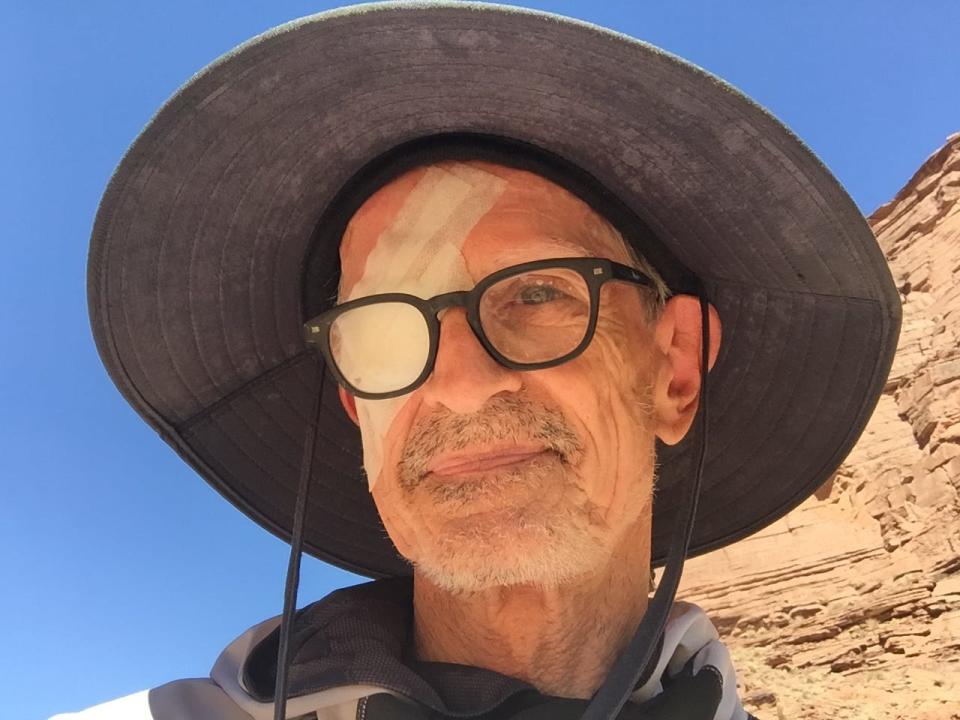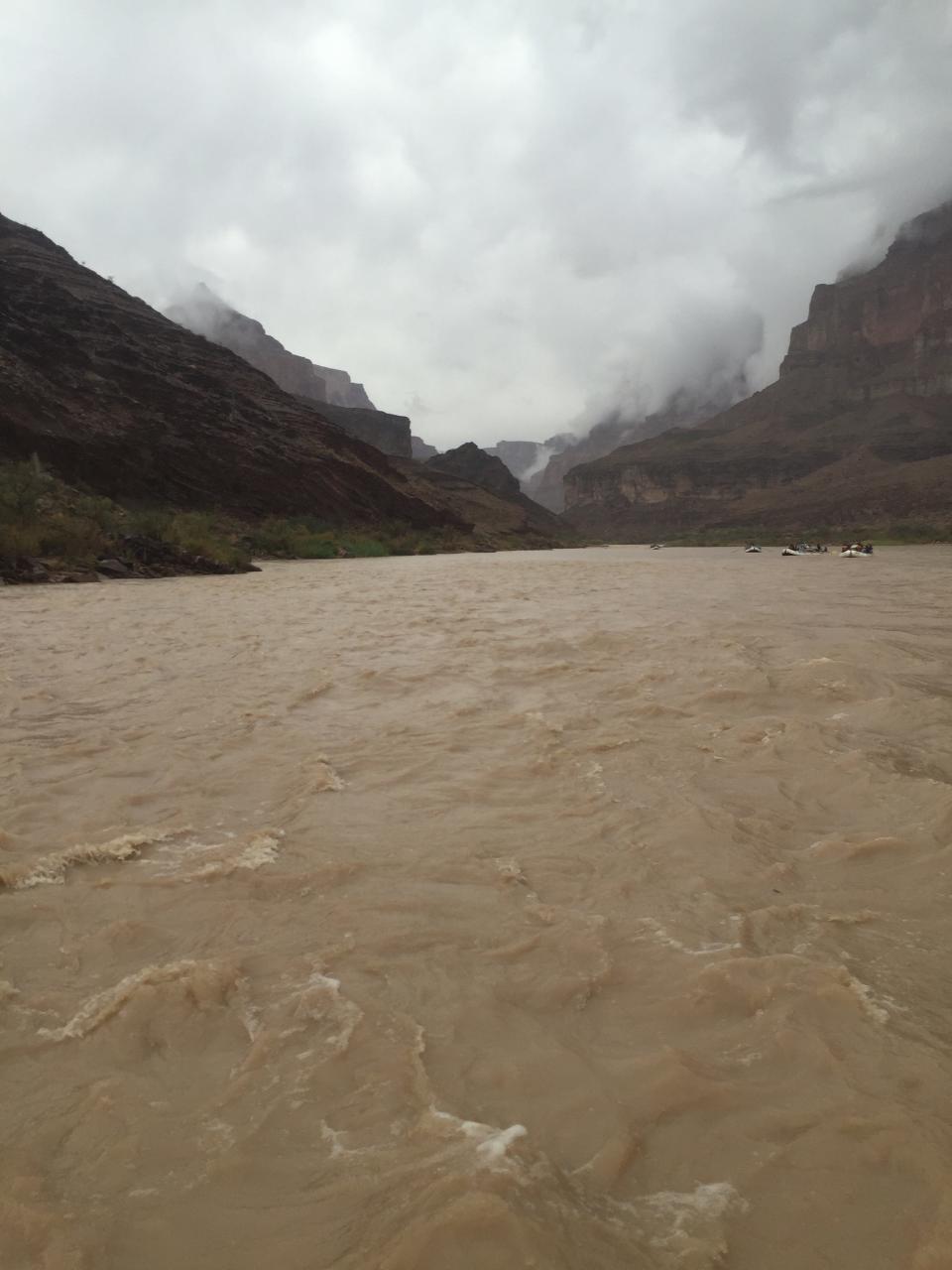Discovering the place on the Colorado where water becomes river

If I had not lost the vision in my right eye, I might have missed seeing the Colorado River.
Such a thing would not have seemed possible a week earlier at Lee’s Ferry, where we began a 16-day, 226-mile rafting trip. Everything that day was sun and water and possibilities.
There were more than 20 of us on five rafts and a paddle boat. Plus four kayaks. Some in the group had come looking for adventure. Some came looking for peace. More than a few came to find themselves. Others hoped to lose themselves. There was in me a bit of all those things.
In the end, however, I went looking (with one eye) for a river.
And I found it.
A discovery at Crystal Rapid, Mile 99
The waterway in the county where I grew up was much different from this.
The Ohio River outside of Pittsburgh kept its own counsel, silently easing past the steel mill where my father worked, and my uncles and brother worked, and where I worked.
It slipped quietly under many bridges, serving as the silky highway for coal barges and tug boats. Railroad tracks lined its banks like boot laces. Highways pressed against its shore.
Whatever the Ohio had to say before all of the factories and towns and businesses squeezed its edges had been spoken long before I was born, with no apparent need for repeating.
A river's secrets revealed: Bodies, boats surface as water levels decline
The Colorado is not like that.
The Colorado speaks.
The Colorado tells its story, if you take the time to listen.
I hadn’t bothered to do so until Mile 99, at Crystal Rapid, where the churning, mocha water of the Colorado became a river.
Like the Sistine Chapel, only better

We’d gone through the rapid in the paddle boat, the waves punching at our midsection from below, dipping the bow and the stern. In one of the big milky surges a grain of sand, a twig, a pebble, something, caught my right eye and scratched the cornea.
A doctor on the trip advised bandaging the eye for a few days to aid in healing and to keep the river water out. Doing so limited my depth perception, though, and kept me from joining in on the steep rocky hikes tucked into the Grand Canyon’s walls.
On those days, when the others drifted off, I spent time by myself next to the river. Watching it. Listening to it. The great bulwark of stone rising on both sides. The sound of the river interrupted only occasionally by the throaty call of a swooping raven, rolling her Rs.
It was as if the Sistine Chapel had been emptied and its doors locked, and I had the place all to myself.
Only better.
Limiting my eyesight improved my vision. And even more strangely, my hearing.
Listening to what the river tells us

There is language in the sound of a river roiling over boulders, over stones. There are whispers in the water lapping on its shore. There are warnings in water rushing along stone walls.
Even in what appears to be flat, silent water there are tiny boils and eddies that giggle like children.
And the roaring you hear in the Colorado’s rapids, though fierce and unconstrained, is not angry.
It is just … urgent.
Outside of the canyon we are knotted up in the social, political and economic concerns involving the river, the demands of many states and the federal government. We worry about the drought that is ongoing while our demands for water continue to grow. And grow. And the needs of our expanding population increase, then increase again.
A discussion beyond water, to river
But as the river twists and turns, rushes and lolls for hundreds of miles through the canyon, the Colorado is trying to get our attention, to change our perspective, to remind us that when we talk about the Colorado, which we do so often, it should not only be a discussion about water, but about a river.
From a quiet spot on the riverbank at the bottom of the Grand Canyon, the idea of reducing the Colorado to a commodity seems barbarous, ridiculous.
As if we haven’t figured out that strength and grace and beauty are reasons enough to preserve a thing.
As if, instead, our self-interest is reason enough to destroy it.
To rob it of its essence.
To literally swallow it.
Reach Montini at ed.montini@arizonarepublic.com.
For more opinions content, please subscribe.
This article originally appeared on Arizona Republic: Colorado River has a lot to say, if you stop long enough to listen

